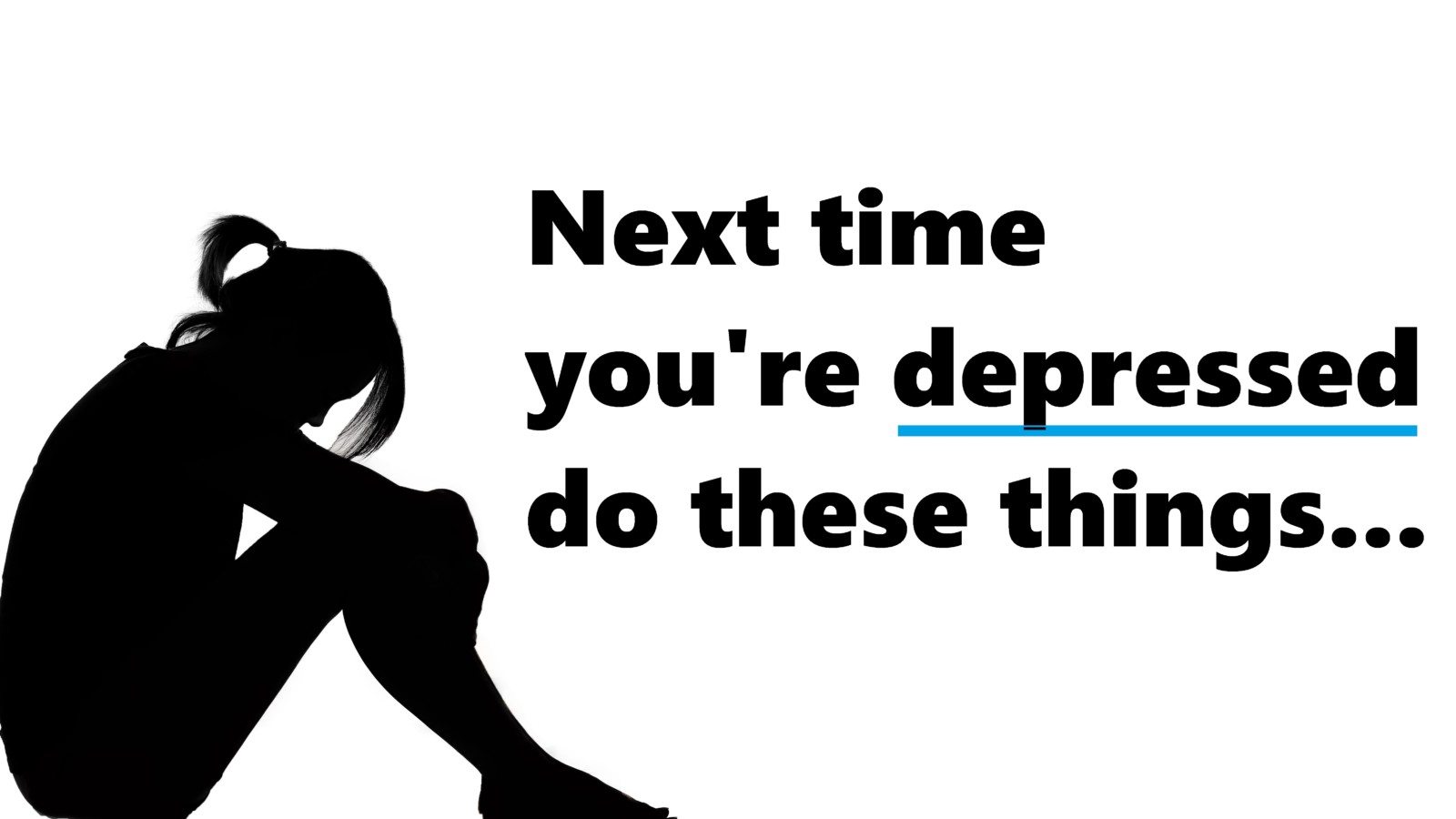Depression is a mysterious illness. Brain scientists and psychologists say that it’s a chemical imbalance in the brain, which is true. The issue isn’t with the diagnosis, but with the treatment.
The problem – and it’s a prevalent one – is the over-prescribing of brain-altering drugs as “the cure.” However, prescription drugs do no such thing. While one may feel some symptomatic relief, drugs merely mask the underlying condition.
This is not to say that prescription medication has no value. But no drug has been, and likely never will be, marketed as a short-term solution. Therein lies the rub.
Once you’re on the drug, you’re on the drug. To wean off of anti-depressants safely requires tapering, or lowering of the dosage for an extended period.
This tapering process often produces some nasty side effects (see serotonin syndrome and brain zaps). Some of these side effects are so severe in certain people that the physician has to up the dosage again.
Is there a better way? We’ll turn to what worked for some Quora members and let you decide!
Please bear in mind that everyone’s brain chemistry is different. What works for someone else may not work for you. This information is not intended to take the place of medical advice.
THAT SAID, HERE ARE FIVE WAYS TO POTENTIALLY REVERSE DEPRESSION AND FEEL HAPPY AGAIN!
1. DANCE
That’s right. Shake a leg. Boogie. Do the twist. You get the idea. Here’s what one young man had to say about how dancing helped him:
“If ever in the life you danced like a drunk, you will come to know that dance is the best mental exercise.” And this young man may be onto something.
Here’s what the Department of Neurobiology at Harvard University says:
“How many of those who are ballroom dancing, doing the foxtrot, break dancing, or line dancing, realize that they are doing something positive for their bodies – and their brains? (Dancing) has such beneficial effects on the brain that it is now being used to treat people with Parkinson’s disease…”
2. WORKOUT
Exercise benefits the brain in many ways. First, exercise stimulates the heart which in turn releases more blood. Blood flow is an important element of cognitive health. Second, exercise releases endorphins which are potent anti-stress hormones. Third, exercise (especially of the aerobic variety) enhances neurogenesis – or the growth of new brain cells.
All of these effects are tremendously beneficial for your overall well-being.
Once again, the young man is right on the ball:
“Workout (is) the best way to release anger. The more angry you are, (the greater) will be your workout. And once you are done with you workout your anger will be gone and you will be more relaxed. If you talk about depression, it will motivate (you) to (go) workout.”
3. TRAVEL
Travel can be a bit difficult due to time constraints. One way around this limitation is to rethink what it is to “travel.” We needn’t take a flight to somewhere, book an expensive hotel, or arrange transport. Simply getting away from it all is good enough.
“The other way to get rid of (depression) is to travel alone. Plan a trip to any hill station ( a town in the low mountains of the Indian subcontinent) … When you come back from the trip you will find your mind healthy.”
You probably don’t live in India as this young man does, but you get the idea. There’s a beautiful and peaceful place not too far from you. Will you go?
4. LIFESTYLE CHANGES
A former competitive runner and epidemiologist for the Centers for Disease Control and Prevention (CDC) gives some valuable advice:
– “Vitamin therapy in which large doses of vitamin B is ingested regularly under the supervision of a doctor.”
– “Fairly vigorous exercise has been shown to release the same neurotransmitters as antidepressant medications.”
– “Reducing sugar intake and eating less processed foods including gluten.”
– “Meditation and deep breathing exercises.”
Finally, another piece of valuable advice:
“Claims of depression cures are often used to see products that may be useless or only work for those who believe (because) a television personality or celebrity doctor says so.”
5. ASK YOURSELF: WHAT MAKES YOU FEEL HAPPY AGAIN?
Once again, please understand that depression is a neurochemical imbalance that requires patience, diligence, and possibly medical intervention to overcome.
It’s a tough illness to deal with at times, and many people do so in their own way.
But perhaps happiness can be found in some … well … other places!
The warm-hearted answer from the same young man mentioned prior deserves some page space! Here are, once again, some of his suggestions:
“Find a room alone and a mirror. Stand in the of the mirror, (stick) your tongue out and start jumping. Your mood will be light soon.”
“The other way (is) to hangout with (friends).”
“These are the ways that will help you with the depression.”
Gotta love the enthusiasm!
And if you cracked a smile reading his answer, we’re heading in the right direction.












